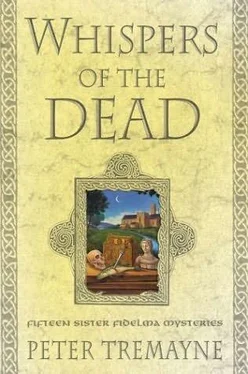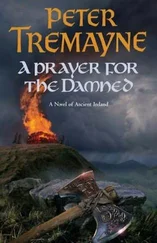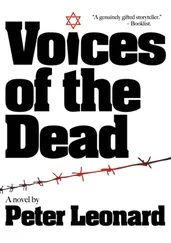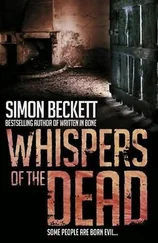Peter Tremayne - Whispers of the Dead
Здесь есть возможность читать онлайн «Peter Tremayne - Whispers of the Dead» весь текст электронной книги совершенно бесплатно (целиком полную версию без сокращений). В некоторых случаях можно слушать аудио, скачать через торрент в формате fb2 и присутствует краткое содержание. Жанр: Исторический детектив, на английском языке. Описание произведения, (предисловие) а так же отзывы посетителей доступны на портале библиотеки ЛибКат.
- Название:Whispers of the Dead
- Автор:
- Жанр:
- Год:неизвестен
- ISBN:нет данных
- Рейтинг книги:4 / 5. Голосов: 1
-
Избранное:Добавить в избранное
- Отзывы:
-
Ваша оценка:
- 80
- 1
- 2
- 3
- 4
- 5
Whispers of the Dead: краткое содержание, описание и аннотация
Предлагаем к чтению аннотацию, описание, краткое содержание или предисловие (зависит от того, что написал сам автор книги «Whispers of the Dead»). Если вы не нашли необходимую информацию о книге — напишите в комментариях, мы постараемся отыскать её.
Whispers of the Dead — читать онлайн бесплатно полную книгу (весь текст) целиком
Ниже представлен текст книги, разбитый по страницам. Система сохранения места последней прочитанной страницы, позволяет с удобством читать онлайн бесплатно книгу «Whispers of the Dead», без необходимости каждый раз заново искать на чём Вы остановились. Поставьте закладку, и сможете в любой момент перейти на страницу, на которой закончили чтение.
Интервал:
Закладка:
“Was it your father’s voice?”
“I did not think so at the time. But time often confuses some details.”
“Your memory appears clear enough.”
“It is the truth, I tell you,” she replied defensively.
“What happened then?”
“I saw my father emerge from the chapel. A voice was crying-‘Tanaí has murdered Una!’-or words to that effect. I saw my father running. Later I realized that he was running to the abbot’s rooms in fear for his life. But there was an outcry, and the people were angry. I did not know what had happened. I was taken to our rooms by one of the religieuse and remained there until my mother, prostrate with grief, was carried inside. She had seen my father being. .” Her voice caught and she paused a second before continuing. “She had seen my father being lynched outside the abbot’s rooms. She never recovered and died soon afterward.”
There was a silence between them for a while.
“From what you tell me, your father could not have killed Una,” Fidelma finally observed. “Did you never tell your story?”
Muiríol nodded.
“I told it to the old abbot, but I was not believed.”
“But did you tell it to the Brehon who investigated the matter?”
“The matter was kept secret within the abbey for years until the old abbot died. The abbot felt guilty that the lynching had taken place with members of the community involved, and he wished to conceal it. So it was not reported to the Brehons. That was why the religious here were kind to me and raised me as one of the community. After the old abbot had died, no one bothered about the story of Una and my father.”
“Knowing this, why did you remain in the abbey?”
The girl shrugged.
“One day, so I hoped, I would find the guilty one. Someone in this abbey killed Sister Una and was also responsible for my father’s death.”
“So you wished your father’s name to be cleared?”
Muiríol grimaced.
“That was my original purpose. Twenty years have passed. Is anyone still interested?”
“Justice is always interested in justice.”
“Isn’t there a saying that there is little difference between justice and injustice?”
“If I believed that I would not be an advocate of the courts,” Fidelma returned.
Fidelma was irritated. She could not sleep. Her mind was filled with the thoughts of young Sister Una’s death. She turned and twisted for an age, but sleep would not come to her. She sat up and judged it was long past midnight.
Finally, she rose from her bed, put on her robe, and decided to go down to the abbey gardens to walk in the cool of the summer night. The only way to the garden that she knew of led through the chapel.
She heard the sound almost immediately as she opened the door into the chapel-a low groaning sound followed by a thwack as if of leather on a soft substance. The groan rose in a new note of pain.
Then she heard a voice: “Mea culpa, mea culpa, mea maxima culpa!”
Her eyes narrowed at the familiarity of the masculine voice. She peered into the gloom to seek out the penitent.
A figure was kneeling before the marble statuette of Sister Una, head almost to the ground. The back was bare where the robe was stripped down to the waist. In one hand was a broad leather belt that, every so often, the figure would strike his back with, drawing blood, as she saw by the candlelight. Then the groan would issue a second or so after the impact of the leather on the flesh. The words of contrition were mumbled in Latin.
Fidelma strode forward.
“Explain this, Abbot Ogán!” she demanded coldly.
The abbot froze for a moment and then slowly straightened himself up, still kneeling on the chapel floor.
“This is a private penitence,” he replied harshly, trying to summon anger to disguise his shock at being thus discovered. “You have no right to be here.”
“On the contrary. As a dálaigh of the Brehon courts, no doors are barred to me, Abbot Ogán, especially when it is deemed that a crime has been committed.”
The abbot rose from his knees, pulling his robe around his shoulders. Fidelma had noticed that his back was scarred. It was of no concern to her that the abbot practiced flagellation: many mystics of the Church did, although she found such practices distasteful in the extreme. The scars, obvious even in the candlelight, indicated that the abbot had practiced the self-abuse for many years.
Ogán was defensive before her hard scrutiny.
“What crime?” he blustered.
With a slight forward motion of her head, Fidelma indicated the statuette of Sister Una.
“You seem to be expressing some guilt for her death. Were you guilty of it?”
The last sentence was suddenly sharp.
Abbot Ogán blinked rapidly at the tone.
“I was responsible, for had I been in the chapel at that time she would not have been alone to confront Tanaí.”
Fidelma’s brows came together.
“I do not follow.”
“It was my task on the day she was killed to clean the chapel. I had delayed my task out of simple sloth and indolence.”
“I see. So you were not here when you should have been. If you feel guilt then that is within you. So when did you become involved in leading the hue and cry after Tanaí?”
A frown passed the abbot’s face.
“Who said I did?” he asked cautiously.
“Are you saying that you did not?”
“I. . I came on the crowd as he escaped across the garden. Everyone was shouting. They caught and hanged Tanaí from the tree outside the old abbot’s quarters. That was when I first knew about her death and realized my guilt, for if I had been here. .”
“An ‘if’ will empty the oceans,” Fidelma snapped. “So you did not witness the event? You did not identify Tanaí as the murderer and would-be thief?”
Abbot Ogán shook his head.
“Everyone was proclaiming that Tanaí was the guilty one.”
“But someone must have done so first. Who first identified Tanaí as the culprit?”
The abbot again shook his head in bewilderment.
“Perhaps a few of those who were there that day and who have remained in the abbey might recall more than I do.”
“Who might they be?”
“Brother Liag, Brother Librén, Brother Duarcán, and Brother Donngal. Everyone else who was here at the time has either died or moved on.”
“You have neglected to mention Tanaí’s daughter, Sister Muiríol,” observed Fidelma.
The abbot shrugged.
“ And Sister Muiríol. But she was only twelve years old at the time. No one took any notice of her, for like any loyal daughter, she swore her father was innocent.”
Fidelma paused for a moment and looked once again at the vibrant features on the statuette. An idea suddenly occurred to her.
“Tell me, Ogán, were any of the community in love with Una?” The abbot looked bewildered and then pursed his lips sourly.
“I suppose that we all were,” he said shortly.
“I think you know what I mean.”
Celibacy was not required among the religious of the Church in Ireland. Most houses, like this abbey, were often mixed communities in which the religious, male and female, lived and brought up their children in the service of the new religion.
Fidelma noted that Ogán’s chin jutted out a little more.
“I believe that some of the brethren were emotionally and physically enamored of her. She was a very attractive woman, as you may have noticed, because this statuette is an excellent likeness.”
“Were you, yourself, in love with her?”
The abbot scowled.
“I was not alone in my feelings.”
“That was not my question.”
“I admit it. There was a time when I thought we could have been together under God’s holy ordinances. Why are you asking such questions? It has nothing to do with her murder.”
Читать дальшеИнтервал:
Закладка:
Похожие книги на «Whispers of the Dead»
Представляем Вашему вниманию похожие книги на «Whispers of the Dead» списком для выбора. Мы отобрали схожую по названию и смыслу литературу в надежде предоставить читателям больше вариантов отыскать новые, интересные, ещё непрочитанные произведения.
Обсуждение, отзывы о книге «Whispers of the Dead» и просто собственные мнения читателей. Оставьте ваши комментарии, напишите, что Вы думаете о произведении, его смысле или главных героях. Укажите что конкретно понравилось, а что нет, и почему Вы так считаете.












